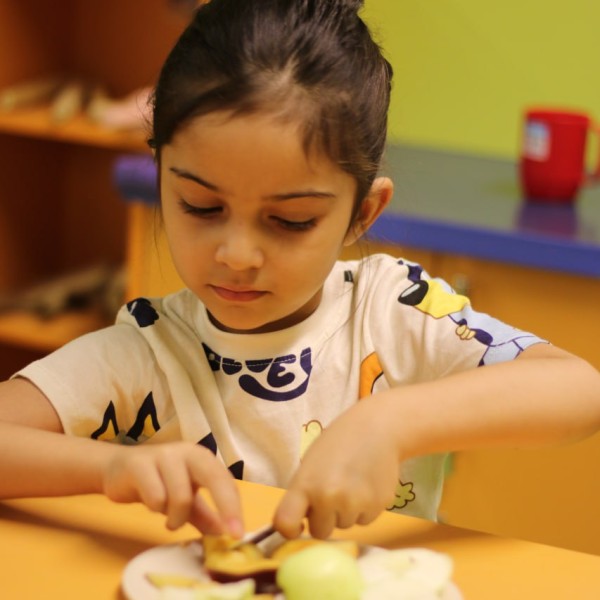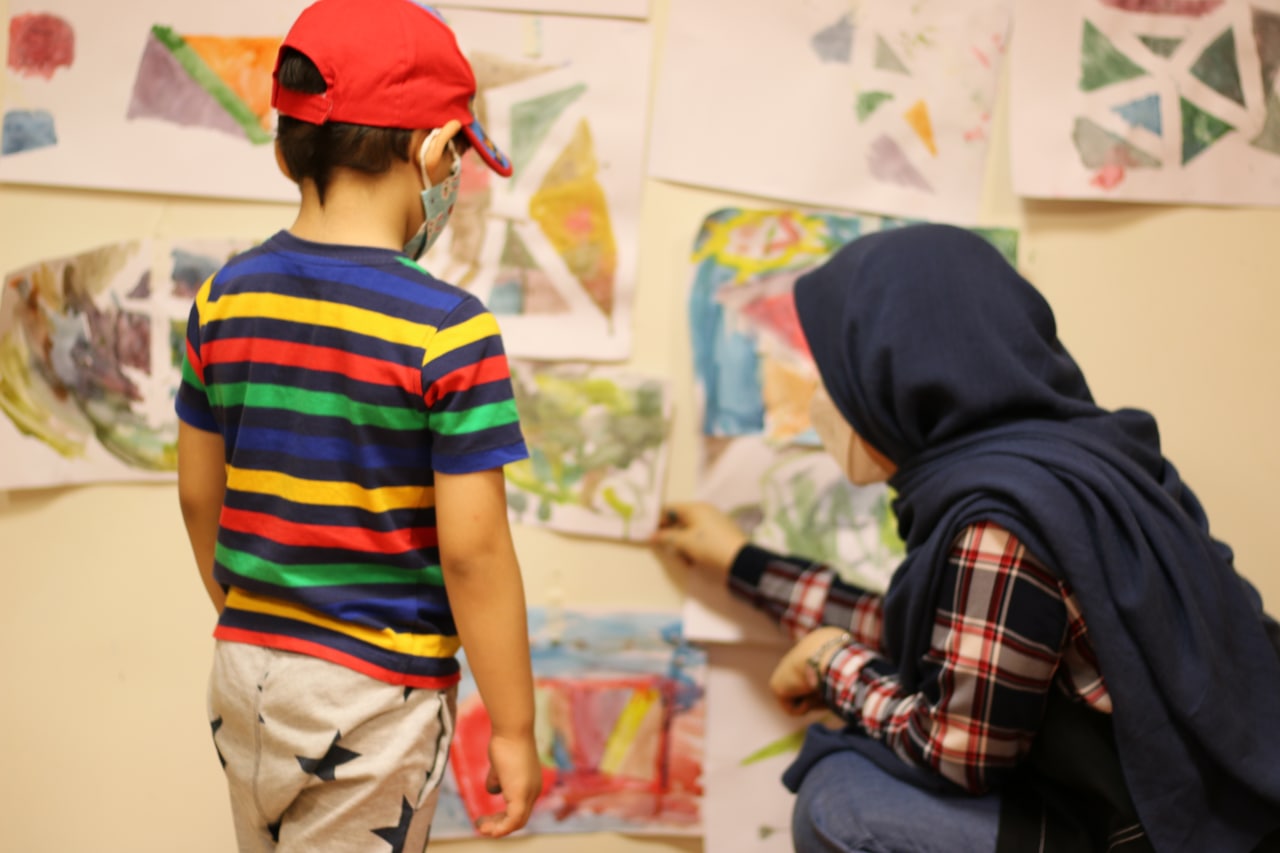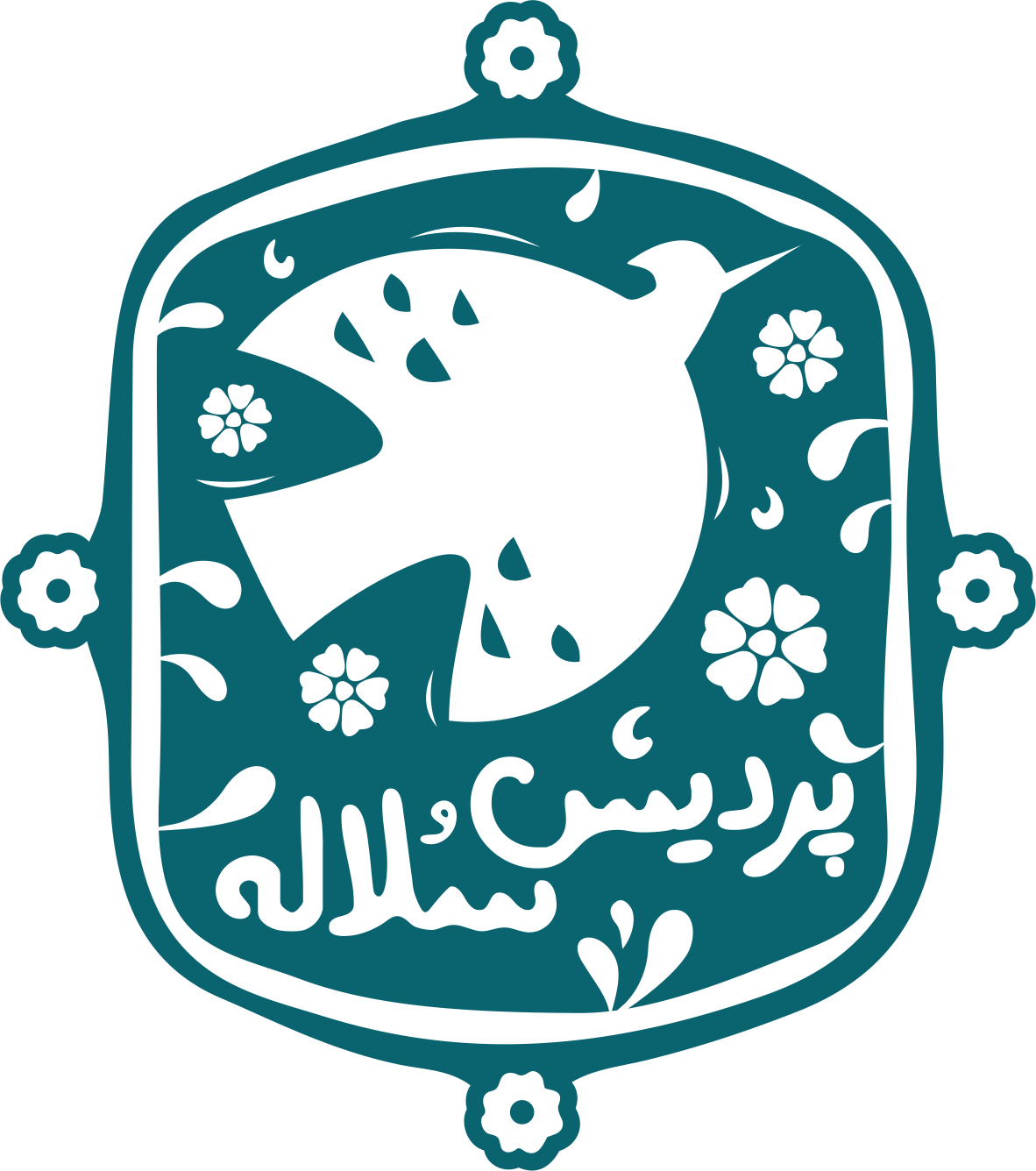
Solaleh Educational Campus Services and Programs
Solaleh Preschool’s growth is inspired by the sunlight that rises over the high mountains and spreads across the world. In this formative journey, early childhood is uniquely adaptable, creative, and driven by exploration. As children transition from early to middle childhood (preschool age), their development naturally shifts from broad experiences to more precise and focused skills—marking the “beginning of academic abilities.”
Mastering foundational academic skills such as reading, writing, mathematics, and science becomes a gateway to new discoveries. Our goal is to harmonize natural curiosity and exploration with structured school learning, prioritizing research-based and discovery-oriented learning approaches.
Our Path
Our child has completed early childhood and gained valuable experiences along the way. Here, we aim to walk alongside you once more to facilitate their growth in this new developmental stage, helping them find their path and take meaningful steps toward personal growth.
The academic year begins in September and continues until the end of May, divided into two semesters. At the end of each semester, you will receive an evaluation of your child, and our communication will remain continuous throughout this journey. The educational programs we provide—designed to create new experiences for our children—are delivered in one of three formats depending on the situation: in-person, hybrid, or fully online.

Our First and Most Important Goal
Providing the opportunity for children to truly be themselves—independent, joyful, and creative individuals.
To take meaningful steps in any area, one must be familiar with its details. When it comes to a developing and self-forming being called a child, a serious awareness in every aspect is essential. Anyone working in this field must strive to fully understand the human child. While this understanding is like an endless ocean, it is crucial to progress as much as possible along this path, approaching these beloved and yet still mysterious beings with sufficient knowledge and awareness.



The Role of the Teacher as a Facilitator
In the classroom, the teacher acts as a facilitator. Whenever needed, they become the child’s peer, joining them at their level, and whenever necessary, they serve as a secure support. Not as an adult who commands, but as a companion who is present with the children at every moment, occasionally stepping back under indirect supervision to allow the child to manage the moment independently. Of course, whenever and wherever needed, the teacher remains the child’s greatest source of calm. Yet, through this constant presence, we aim to give our children the taste of independence and the experience of “I am capable.”
Entering the child’s world requires art, skill, knowledge, love, and respect for personal boundaries, as well as finding the path to genuine friendship.
Every moment of a child’s presence—whether in-person or online—is guided by a specialized plan. How should we initiate communication with a child? Will they allow us into their world? Are they looking at us? What thoughts cross their mind with that gaze? How do they feel right now? And so on…
We are responsible for these endless questions, entrusted with the most valuable assets of our society. One phrase remains unchallenged for us: the child’s well-being.
Even if the sky fell to the earth, it would not alter this truth. We have discovered the path to purposefully shaping every precious second of our children’s lives.
